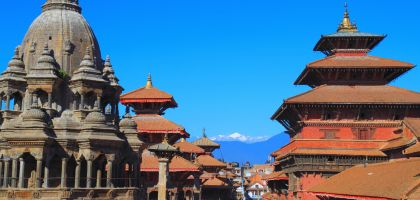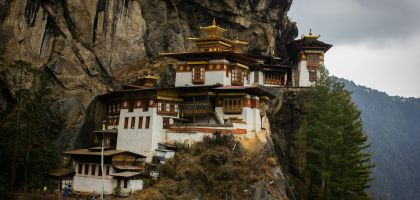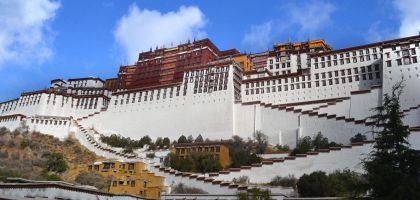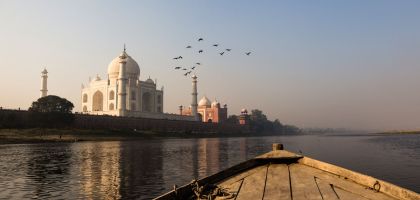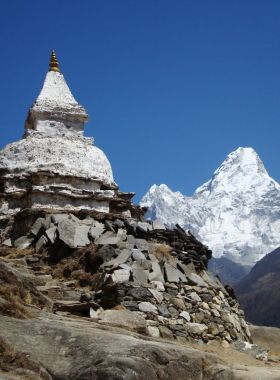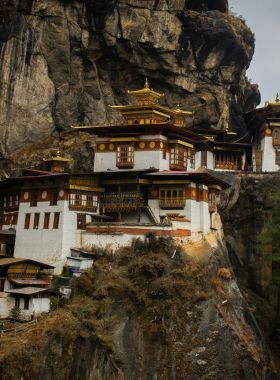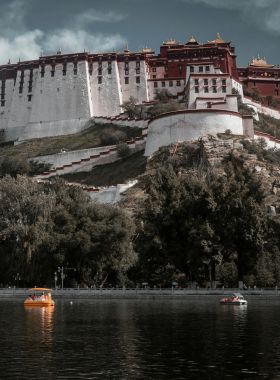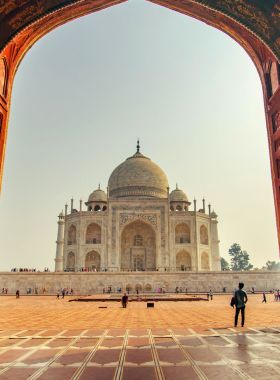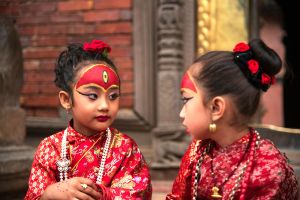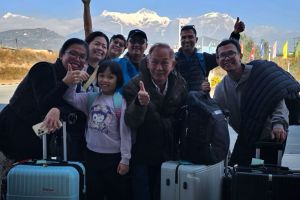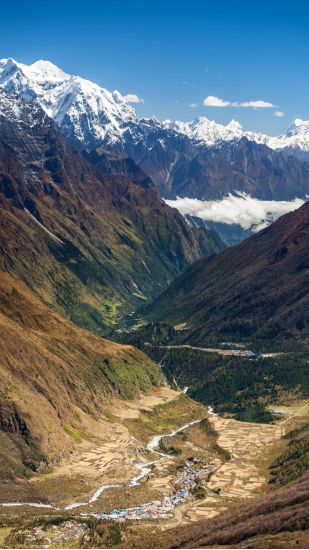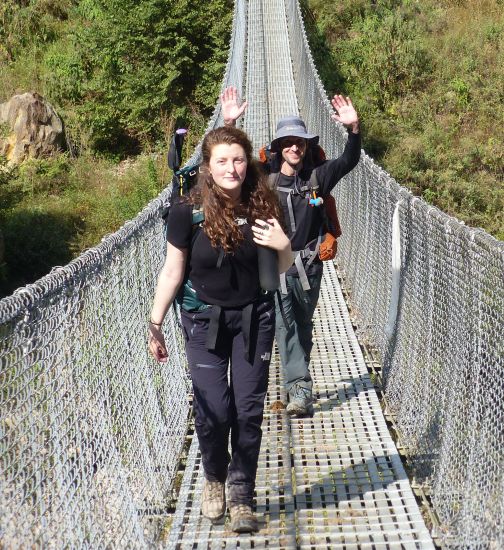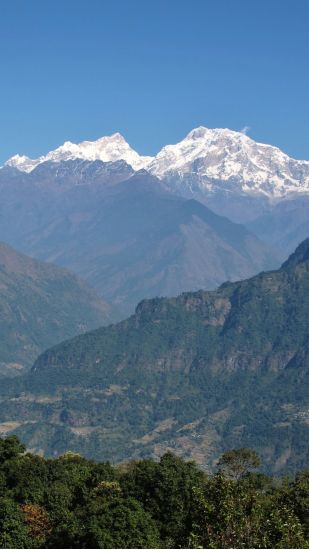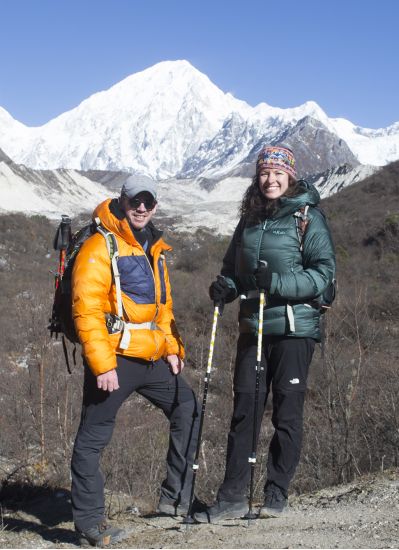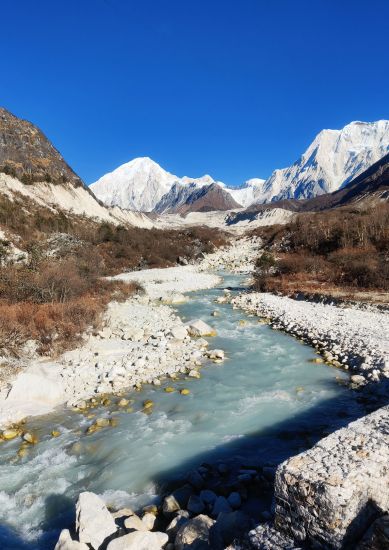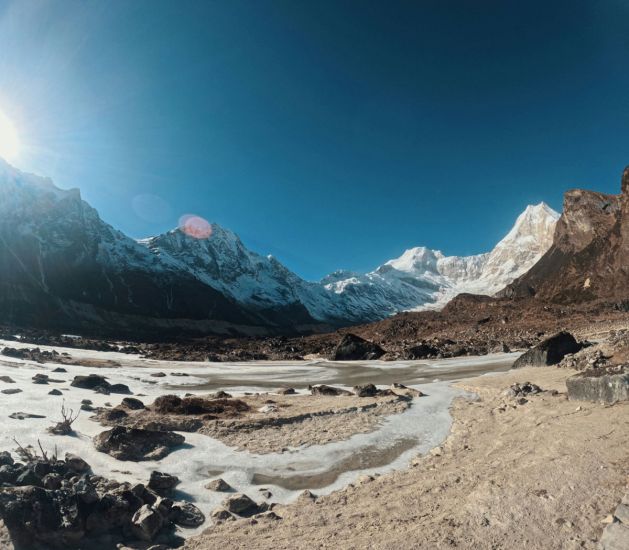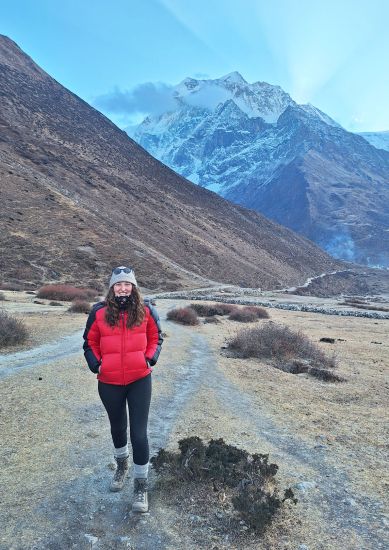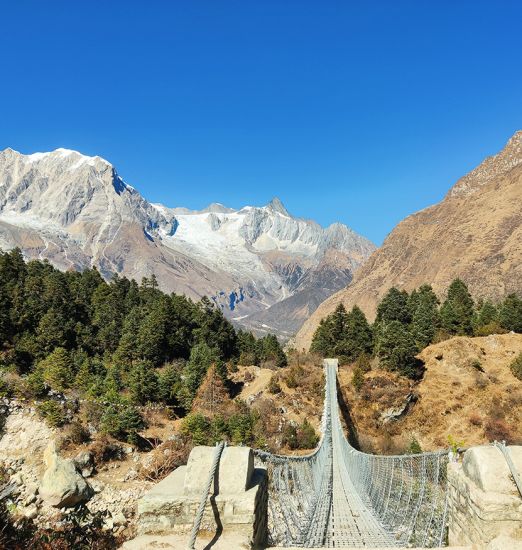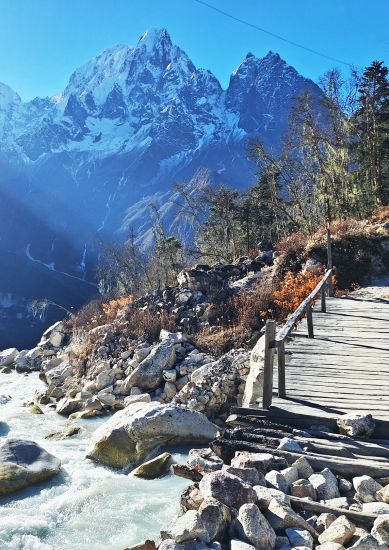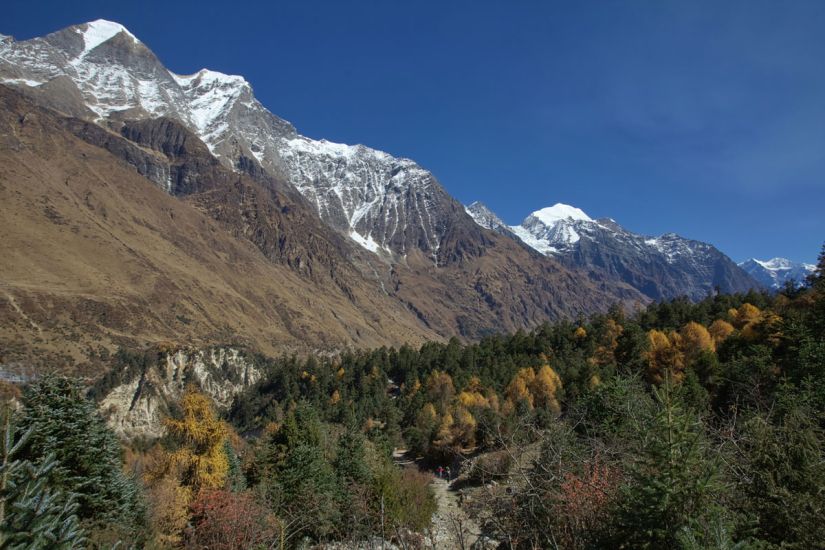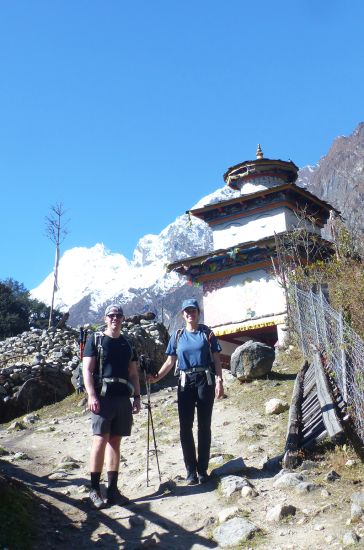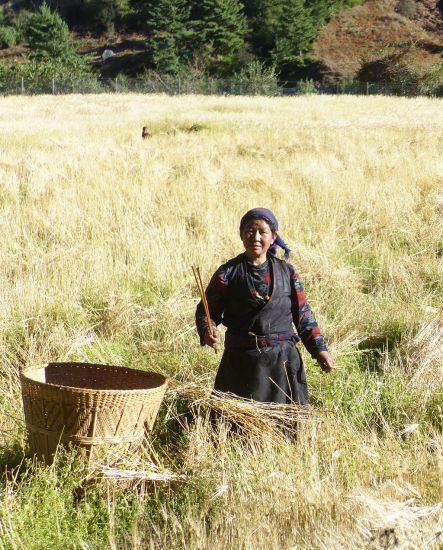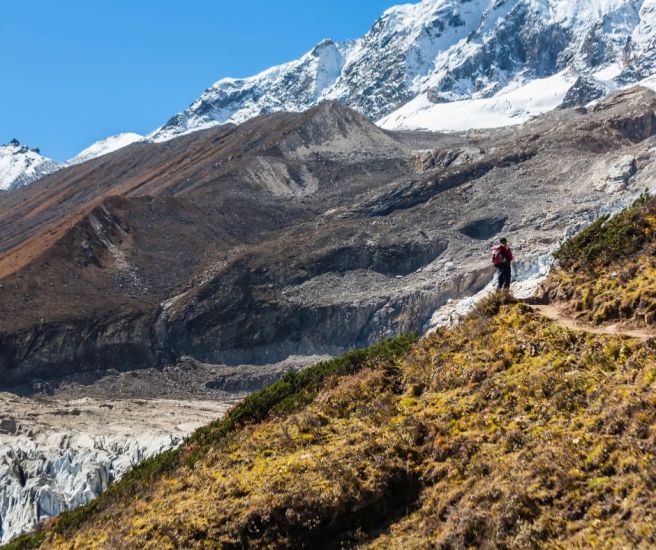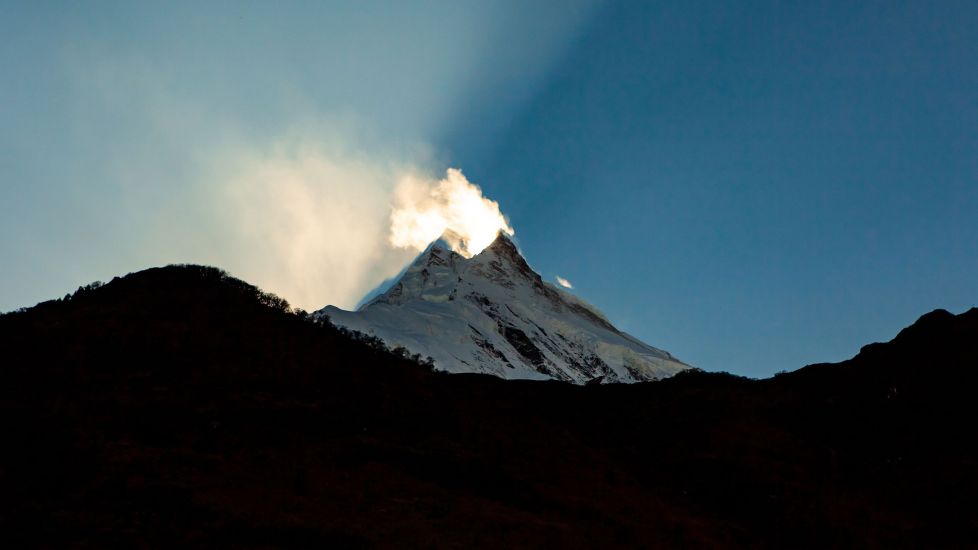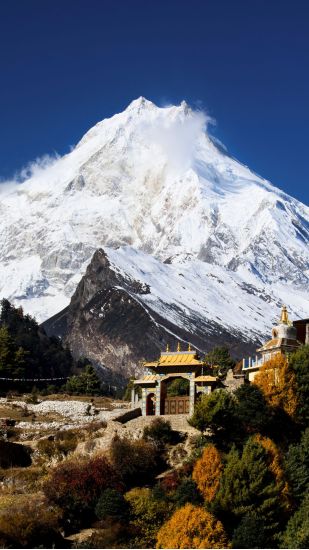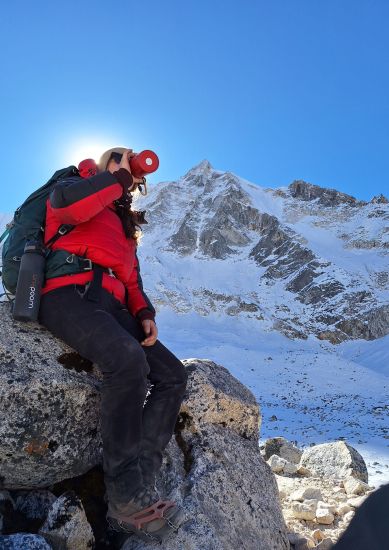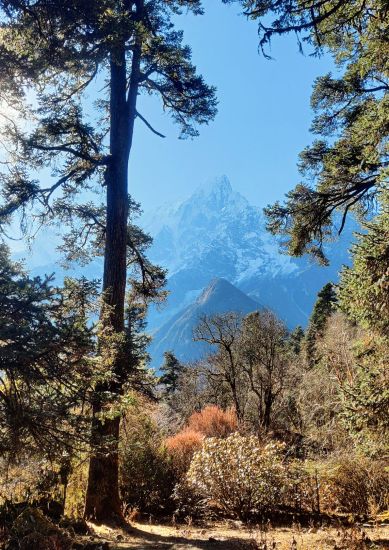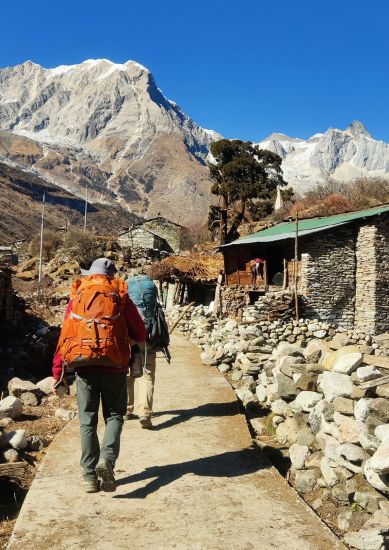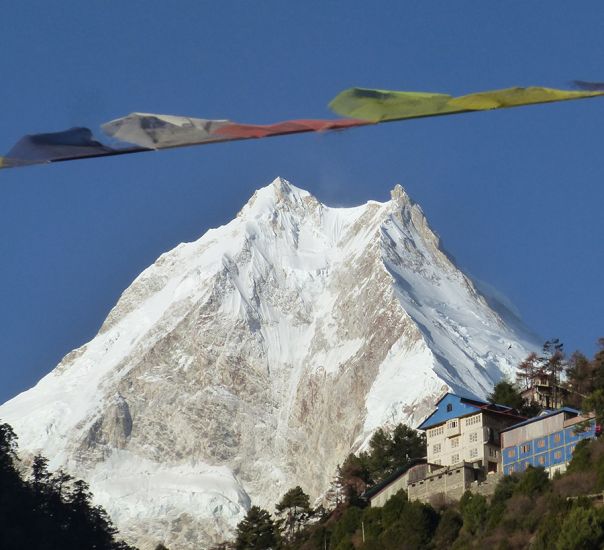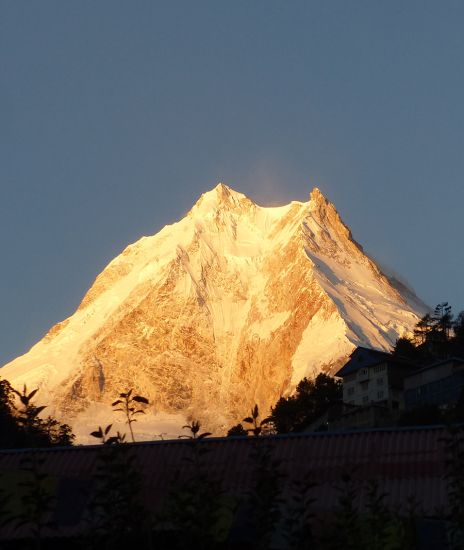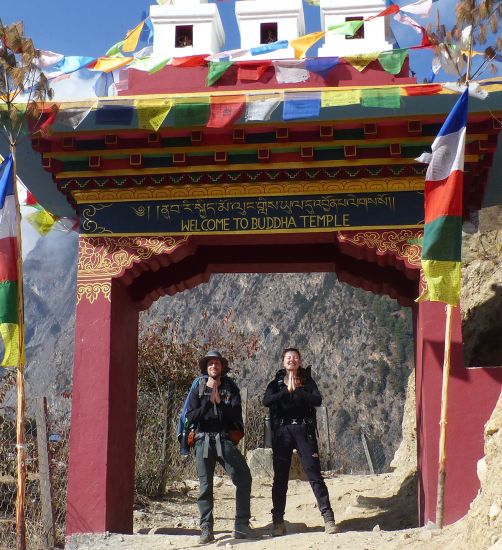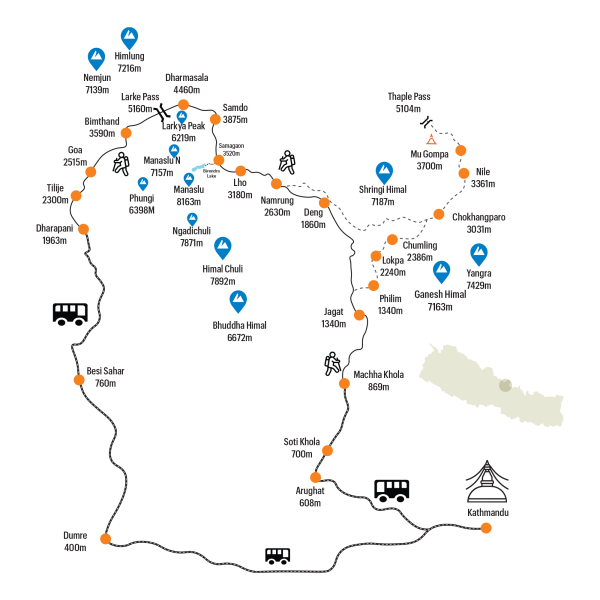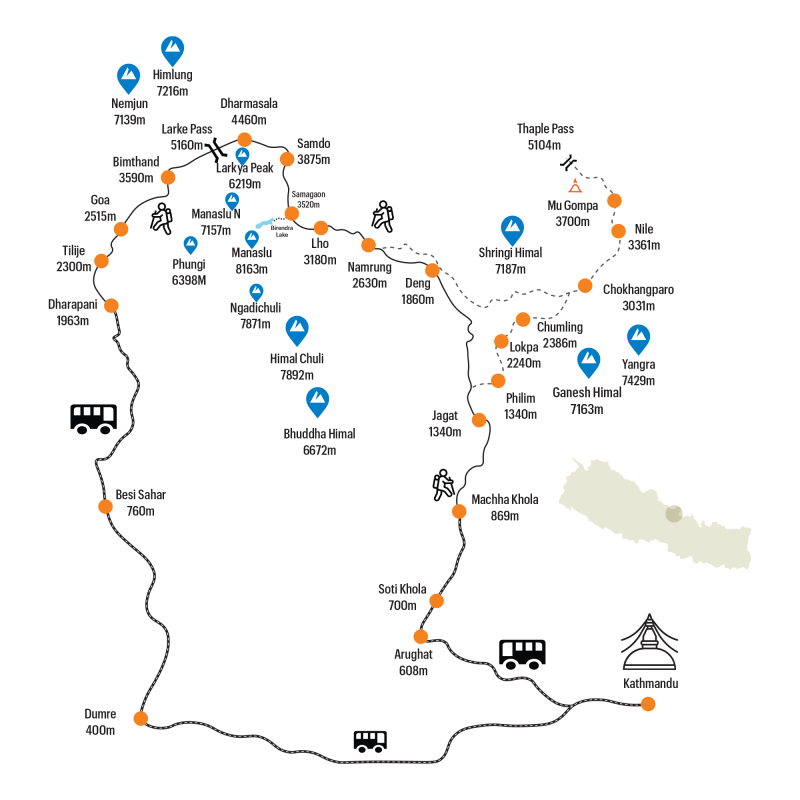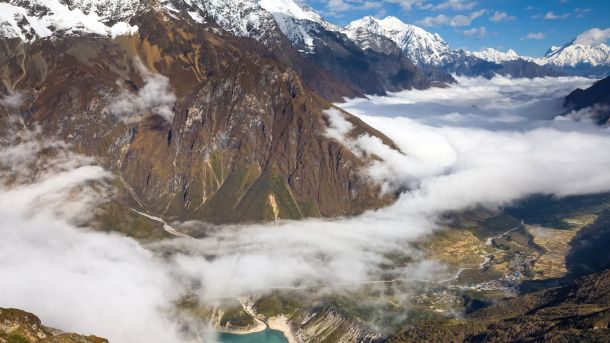Manaslu Circuit Trek
14 Days / Nepal
Activity
Difficulty Level
Destinations
Trip Start / End
Max Altitude
Accommodation
Travel Style
Best time to travel
Personalized Travel Advice

Dev Raj Nepal
+977 9851096523
Personalized Travel Advice

Dev Raj Nepal
+977 9851096523
Detailed Itinerary
01
DAY
01
Upon arrival at Tribhuvan International Airport (TIA), you will be warmly greeted and transferred to your hotel in Kathmandu. After check-in, you can relax or explore the bustling streets of Thamel, the heart of Kathmandu’s tourist district, known for its lively atmosphere and cultural charm. In the evening, we will hold a short briefing on the Manaslu Circuit Trek. This orientation will cover essential details on permits, logistics, safety measures, and the trail.
We will also host a dinner for you at a traditional Nepalese restaurant in Kathmandu.
Arrive in Kathmandu
Upon arrival at Tribhuvan International Airport (TIA), you will be warmly greeted and transferred to your hotel in Kathmandu. After check-in, you can relax or explore the bustling streets of Thamel, the heart of Kathmandu’s tourist district, known for its lively atmosphere and cultural charm. In the evening, we will hold a short briefing on the Manaslu Circuit Trek. This orientation will cover essential details on permits, logistics, safety measures, and the trail.
We will also host a dinner for you at a traditional Nepalese restaurant in Kathmandu.
02
DAY
02
This will be a full-day guided cultural tour of three UNESCO World Heritage Sites. This day tour will offer a deep dive into Nepal’s rich history and spiritual significance. This is also give you sufficient time to prepare for the Manaslu Circuit trek.
In the morning, we will make a visit to the Pashupatinath Temple, the holiest Hindu temple dedicated to Lord Shiva, located on the banks of the sacred Bagmati River. This vast temple complex is famous for its intricate architecture, vibrant Hindu rituals, and open-air cremation ghats. You will witness devotees performing religious ceremonies and sadhus (holy men) meditating around the temple.
Next, we visit Boudhanath Stupa, one of the largest Buddhist stupas in the world and a major pilgrimage site for Tibetan Buddhists. The all-seeing eyes of the Buddha atop the stupa symbolize awareness and enlightenment. You can walk around the stupa along the kora (circumambulation path), observe monks chanting prayers, and visit nearby monasteries.
Following that, we visit the famed Patan Durbar Square, an architectural gem of the Malla dynasty, this ancient square in Lalitpur is renowned for its intricate temples, palaces, and courtyards. You will visit the Krishna Temple, Hiranya Varna Mahavihar (Golden Temple), and the Patan Museum, which showcases Nepalese art and culture.
After a fascinating day exploring the spiritual and artistic heritage of Kathmandu Valley, you return to your hotel to prepare for the Manaslu Circuit trek.
Kathmandu Sightseeing
This will be a full-day guided cultural tour of three UNESCO World Heritage Sites. This day tour will offer a deep dive into Nepal’s rich history and spiritual significance. This is also give you sufficient time to prepare for the Manaslu Circuit trek.
In the morning, we will make a visit to the Pashupatinath Temple, the holiest Hindu temple dedicated to Lord Shiva, located on the banks of the sacred Bagmati River. This vast temple complex is famous for its intricate architecture, vibrant Hindu rituals, and open-air cremation ghats. You will witness devotees performing religious ceremonies and sadhus (holy men) meditating around the temple.
Next, we visit Boudhanath Stupa, one of the largest Buddhist stupas in the world and a major pilgrimage site for Tibetan Buddhists. The all-seeing eyes of the Buddha atop the stupa symbolize awareness and enlightenment. You can walk around the stupa along the kora (circumambulation path), observe monks chanting prayers, and visit nearby monasteries.
Following that, we visit the famed Patan Durbar Square, an architectural gem of the Malla dynasty, this ancient square in Lalitpur is renowned for its intricate temples, palaces, and courtyards. You will visit the Krishna Temple, Hiranya Varna Mahavihar (Golden Temple), and the Patan Museum, which showcases Nepalese art and culture.
After a fascinating day exploring the spiritual and artistic heritage of Kathmandu Valley, you return to your hotel to prepare for the Manaslu Circuit trek.
03
DAY
03
After an early breakfast, we take a scenic drive towards Machha Khola, the starting point of the Manaslu Circuit Trek. The journey takes approximately 7 to 8 hours, following the Prithvi Highway along the Trishuli River. The journey offers stunning views of terraced fields, traditional villages, and distant Himalayan peaks. As we reach Arughat, a small town at the foothills, the landscape changes to lush forests and the road becomes more rugged. The final stretch takes us along the Budhi Gandaki River, as we reach Machha Khola, a small riverside village.
Kathmandu – Machha Khola
After an early breakfast, we take a scenic drive towards Machha Khola, the starting point of the Manaslu Circuit Trek. The journey takes approximately 7 to 8 hours, following the Prithvi Highway along the Trishuli River. The journey offers stunning views of terraced fields, traditional villages, and distant Himalayan peaks. As we reach Arughat, a small town at the foothills, the landscape changes to lush forests and the road becomes more rugged. The final stretch takes us along the Budhi Gandaki River, as we reach Machha Khola, a small riverside village.
04
DAY
04
Our Manaslu Circuit Trek begins as we hike along a trail that gently winds beside the Budhi Gandaki River. There are scenic views of sparkling waters and verdant valley slopes. Along the way, we pass through terraced farmland and quaint Gurung settlements, where local villagers provide glimpses into traditional Himalayan life. The trail crosses several suspension bridges and meanders through lush forests filled with rhododendron and pine trees.
We make a short stop at Tatopani, a natural hot spring, where you can relax and soak their tired feet. The trail then ascends through narrow ridges. This point is known for panoramic views of surrounding hills. We then cros the Doban River and arrive at Jagat, an important checkpoint where permits for the Manaslu Conservation Area are registered. This village is where we rest for the night.
Machha Khola – Jagat (Trek Begins)
Our Manaslu Circuit Trek begins as we hike along a trail that gently winds beside the Budhi Gandaki River. There are scenic views of sparkling waters and verdant valley slopes. Along the way, we pass through terraced farmland and quaint Gurung settlements, where local villagers provide glimpses into traditional Himalayan life. The trail crosses several suspension bridges and meanders through lush forests filled with rhododendron and pine trees.
We make a short stop at Tatopani, a natural hot spring, where you can relax and soak their tired feet. The trail then ascends through narrow ridges. This point is known for panoramic views of surrounding hills. We then cros the Doban River and arrive at Jagat, an important checkpoint where permits for the Manaslu Conservation Area are registered. This village is where we rest for the night.
05
DAY
05
The journey from Jagat to Deng takes you through a mix of vibrant villages, flowing rivers, and verdant landscapes. Starting with a steady ascent from Jagat, the trail winds past terraced fields and thick forests. Along the way, you’ll follow the Budhi Gandaki River, cross suspension bridges, and traverse rocky ridges.
As the trail ascends, you reach Philim, a large Gurung village known for its Buddhist stupas, monasteries, chortens, and prayer flags. The vibrant culture of the region becomes evident as you walk past traditional stone houses and interact with the friendly locals. Your guide will tell you more about the region and the culture if you are interested to learn. Stop for lunch in Philim, before the trek continues through forests of pine and rhododendron. Occasionally, you will see picture perfect views of distant snow-capped peaks.
The path gradually narrows as you traverse through remote settlements. You will be crossing multiple suspension bridges over the Budhi Gandaki River. The final stretch includes a series of gentle highs and lows before reaching Deng, a small yet picturesque village. Here, you can explore the local Tibetan-influenced culture, observe prayer flags fluttering in the wind, and enjoy stunning views of the surrounding mountains. We will halt at a Tea house in Deng for the night.
Jagat – Deng
The journey from Jagat to Deng takes you through a mix of vibrant villages, flowing rivers, and verdant landscapes. Starting with a steady ascent from Jagat, the trail winds past terraced fields and thick forests. Along the way, you’ll follow the Budhi Gandaki River, cross suspension bridges, and traverse rocky ridges.
As the trail ascends, you reach Philim, a large Gurung village known for its Buddhist stupas, monasteries, chortens, and prayer flags. The vibrant culture of the region becomes evident as you walk past traditional stone houses and interact with the friendly locals. Your guide will tell you more about the region and the culture if you are interested to learn. Stop for lunch in Philim, before the trek continues through forests of pine and rhododendron. Occasionally, you will see picture perfect views of distant snow-capped peaks.
The path gradually narrows as you traverse through remote settlements. You will be crossing multiple suspension bridges over the Budhi Gandaki River. The final stretch includes a series of gentle highs and lows before reaching Deng, a small yet picturesque village. Here, you can explore the local Tibetan-influenced culture, observe prayer flags fluttering in the wind, and enjoy stunning views of the surrounding mountains. We will halt at a Tea house in Deng for the night.
06
DAY
06
The next part of the Manaslu Circuit Trek takes us deeper into the Himalayan wilderness, with a gradual ascent along forested trails, today. We pass through Ghap, a Tibetan-influenced village with mani walls and chortens. The scenery becomes more dramatic as we gain altitude. From this point onwards, we can clearly see Shiringi Himal (7,161m) in the distance. We cross several wooden bridges and climb stone staircases before reaching Namrung, a charming village with breathtaking mountain views. Overnight at Namrung.
Deng – Namrung
The next part of the Manaslu Circuit Trek takes us deeper into the Himalayan wilderness, with a gradual ascent along forested trails, today. We pass through Ghap, a Tibetan-influenced village with mani walls and chortens. The scenery becomes more dramatic as we gain altitude. From this point onwards, we can clearly see Shiringi Himal (7,161m) in the distance. We cross several wooden bridges and climb stone staircases before reaching Namrung, a charming village with breathtaking mountain views. Overnight at Namrung.
07
DAY
07
This section of the Manaslu Circuit Trek takes us through some of the most breathtaking scenery on the trail. We pass through Lho Village, where the impressive Ribung Monastery stands against a backdrop of panoramic views of Mount Manaslu (8,163 m). Continuing toward Shyala, we are surrounded by towering, snow-capped peaks, including Himalchuli (7,893 m) and Ngadi Chuli (7,871 m). The day ends in Samagaon. Samagaon is a large Tibetan-influenced village known for its traditional stone houses and yak pastures. We settle in Samagaon for the night, soaking in the tranquil atmosphere of this Tibetan-influenced village, surrounded by majestic peaks and grazing yaks.
Namrung – Samagaon
This section of the Manaslu Circuit Trek takes us through some of the most breathtaking scenery on the trail. We pass through Lho Village, where the impressive Ribung Monastery stands against a backdrop of panoramic views of Mount Manaslu (8,163 m). Continuing toward Shyala, we are surrounded by towering, snow-capped peaks, including Himalchuli (7,893 m) and Ngadi Chuli (7,871 m). The day ends in Samagaon. Samagaon is a large Tibetan-influenced village known for its traditional stone houses and yak pastures. We settle in Samagaon for the night, soaking in the tranquil atmosphere of this Tibetan-influenced village, surrounded by majestic peaks and grazing yaks.
08
DAY
08
Acclimatization is essential for adjusting to high altitudes, but it doesn’t mean complete rest. Today, you will explore the stunning landscapes of Samagaon.
One of the best short hikes for acclimatization is a visit to Pungyen Gompa, a remote monastery set against the breathtaking backdrop of Mt. Manaslu, the Pungyen Glacier, and the Nadi River. Alternatively, you can explore Labrang Gompa and Kargya Chholing Monastery, where monks perform pujas (prayers) for trekkers and climbers seeking safe passage in the mountains.
Beyond monasteries, Samagaon offers a unique cultural experience. You can stroll through the village, observing the Tibetan-style stone houses, mani walls, and prayer wheels while interacting with friendly locals. After a fulfilling day of exploration and acclimatization, you will return to your Tea house for the evening, preparing for the journey ahead.
Acclimatization Day in Samagaon
Acclimatization is essential for adjusting to high altitudes, but it doesn’t mean complete rest. Today, you will explore the stunning landscapes of Samagaon.
One of the best short hikes for acclimatization is a visit to Pungyen Gompa, a remote monastery set against the breathtaking backdrop of Mt. Manaslu, the Pungyen Glacier, and the Nadi River. Alternatively, you can explore Labrang Gompa and Kargya Chholing Monastery, where monks perform pujas (prayers) for trekkers and climbers seeking safe passage in the mountains.
Beyond monasteries, Samagaon offers a unique cultural experience. You can stroll through the village, observing the Tibetan-style stone houses, mani walls, and prayer wheels while interacting with friendly locals. After a fulfilling day of exploration and acclimatization, you will return to your Tea house for the evening, preparing for the journey ahead.
09
DAY
09
As we leave Samagaon behind, the trail climbs steadily through vast yak pastures, where herds graze peacefully against the backdrop of rugged, barren landscapes shaped by the high-altitude environment. The route offers panoramic views of towering snow-covered peaks, such as Shishapangma and other Himalayan giants, become more striking with each step. Along the way, you may spot nomadic herders and traditional stone mani walls, adding cultural richness to the natural beauty.
We reach Samdo, a small, serene settlement situated near the Tibetan border at around 3,900 meters. This village serves as an important resting point for trekkers preparing to cross the high Larkya La Pass. Here, the clear mountain air and tranquil surroundings offer spectacular vistas of pristine glaciers and rugged peaks.
Overnight accommodations are in a warm, welcoming teahouse in Samdo, where you can enjoy hearty local meals and the company of fellow trekkers before the challenging days ahead.
Samagaon – Samdo
As we leave Samagaon behind, the trail climbs steadily through vast yak pastures, where herds graze peacefully against the backdrop of rugged, barren landscapes shaped by the high-altitude environment. The route offers panoramic views of towering snow-covered peaks, such as Shishapangma and other Himalayan giants, become more striking with each step. Along the way, you may spot nomadic herders and traditional stone mani walls, adding cultural richness to the natural beauty.
We reach Samdo, a small, serene settlement situated near the Tibetan border at around 3,900 meters. This village serves as an important resting point for trekkers preparing to cross the high Larkya La Pass. Here, the clear mountain air and tranquil surroundings offer spectacular vistas of pristine glaciers and rugged peaks.
Overnight accommodations are in a warm, welcoming teahouse in Samdo, where you can enjoy hearty local meals and the company of fellow trekkers before the challenging days ahead.
10
DAY
10
After breakfast, we take the road that moves through diverse landscapes with stunning mountain views. From Samdo, cross the Budhi Gandaki River and pass Larkya Bazaar before entering the magnificent Pana Danda Valley. The trail continues through grassy slopes, descending to Syacha Khola Valley, where you’ll enjoy views of the Syacha Glacier and snow-capped peaks. The final stretch leads you to Larkya Glacier, which gives you spectacular views of Larke Peak and Naike Peak. After this rewarding trek, you’ll arrive at Dharamsala for an overnight stay amidst the beauty of the Manaslu region. Overnight at a Teahouse.
Samdo – Dharamsala
After breakfast, we take the road that moves through diverse landscapes with stunning mountain views. From Samdo, cross the Budhi Gandaki River and pass Larkya Bazaar before entering the magnificent Pana Danda Valley. The trail continues through grassy slopes, descending to Syacha Khola Valley, where you’ll enjoy views of the Syacha Glacier and snow-capped peaks. The final stretch leads you to Larkya Glacier, which gives you spectacular views of Larke Peak and Naike Peak. After this rewarding trek, you’ll arrive at Dharamsala for an overnight stay amidst the beauty of the Manaslu region. Overnight at a Teahouse.
11
DAY
11
A strenuous day begins early as we ascend to Larkya La Pass (5,160 m), the highest point of the Manaslu Circuit Trek. The climb is challenging, as the trail winds through rocky paths and high-altitude terrain, but the effort is richly rewarded. From the summit, sweeping panoramas of the surrounding giants, such as Himlung Himal, Kang Guru, and Annapurna II, reveal themselves in every direction. The descent that follows takes us through rugged landscapes and glacial valleys, gradually leading into Bimthang. This is a tranquil settlement located amid soaring peaks and shimmering glaciers. Here, the calm of the valley and the crisp mountain air offer a well-deserved respite after an unforgettable day of trekking in the Manaslu region.
Dharamsala – Larkya La Pass – Bimthang
A strenuous day begins early as we ascend to Larkya La Pass (5,160 m), the highest point of the Manaslu Circuit Trek. The climb is challenging, as the trail winds through rocky paths and high-altitude terrain, but the effort is richly rewarded. From the summit, sweeping panoramas of the surrounding giants, such as Himlung Himal, Kang Guru, and Annapurna II, reveal themselves in every direction. The descent that follows takes us through rugged landscapes and glacial valleys, gradually leading into Bimthang. This is a tranquil settlement located amid soaring peaks and shimmering glaciers. Here, the calm of the valley and the crisp mountain air offer a well-deserved respite after an unforgettable day of trekking in the Manaslu region.
12
DAY
12
Following breakfast in the morning, we descend through dense pine and rhododendron forests. This route will lead us to a winding path that takes us past the quiet settlements of Karche and Gho. The path gradually opens up as we approach Dharapani, a bustling village at the confluence of several trekking routes, where stone houses, teahouses, small alleys, and fluttering prayer flags greet us. This is where we will rest overnight.
Bimthang – Dharapani (Trek ends)
Following breakfast in the morning, we descend through dense pine and rhododendron forests. This route will lead us to a winding path that takes us past the quiet settlements of Karche and Gho. The path gradually opens up as we approach Dharapani, a bustling village at the confluence of several trekking routes, where stone houses, teahouses, small alleys, and fluttering prayer flags greet us. This is where we will rest overnight.
13
DAY
13
As the Manaslu trek is complete, we take a scenic drive back to Kathmandu by retracing the winding mountain roads and taking in the last glimpses of the Himalayan landscapes. Upon reaching Kathmandu, you can either rest at your hotel or wander through Thamel and pick up souvenirs to remember your Manaslu Circuit Trek adventure and the joys of trekking in Nepal.
Dharapani – Kathmandu
As the Manaslu trek is complete, we take a scenic drive back to Kathmandu by retracing the winding mountain roads and taking in the last glimpses of the Himalayan landscapes. Upon reaching Kathmandu, you can either rest at your hotel or wander through Thamel and pick up souvenirs to remember your Manaslu Circuit Trek adventure and the joys of trekking in Nepal.
14
DAY
14
After breakfast, you will be transferred to Tribhuvan International Airport for your flight home. Our team will assist you with departure procedures and ensure you have a comfortable and timely journey to the airport.
Kathmandu – Departure
After breakfast, you will be transferred to Tribhuvan International Airport for your flight home. Our team will assist you with departure procedures and ensure you have a comfortable and timely journey to the airport.
Tour Cost
At High Asia Tours, we know that understanding tour costs is essential for planning your trip. Due to variables such as accommodation choices, meal plans, transportation options, group size, and seasonal demand, providing an exact price upfront is challenging.
To assist you, we offer a starting price to give a general idea of the cost:
The starting cost for this tour is
Includes / Excludes
Inclusions
-
Airports pick up and drop off, upon arrival and departure in Kathmandu.
-
Accommodations on Twin Sharing basis
-
Trained Guide
-
Meals mentioned in the itinerary
-
Porter
-
Seasonal fresh fruits as Available
-
Vehicles and transfers
-
Manaslu Special trekking permit fee.
-
Manaslu Conservation Area entrance permit fee.
-
Annapurna Conservation Area entrance permit fee.
Exclusions
-
International airfare
-
Nepal entry visa fee
-
Travel insurance
-
All alcoholic drinks
-
Services not mentioned
-
Meals not mentioned
-
Tips for the guide and porter.
Trip Info
Manaslu Circuit
The Manaslu region in Nepal, encompassing the Manaslu Conservation Area (MCA), stretches from the subtropical Himalayan foothills to the high arid pastures bordering Tibet. This extraordinary zone covers six climatic regions, from tropical valleys at around 600 meters to arctic environments near the summit of Mount Manaslu (8,163 meters), the world’s eighth-highest peak.
While doing the Manaslu Circuit Trek, you come across dramatic ridges, glacial valleys, and surrounding peaks such as Ngadi Chuli, Himalchuli, and Baudha, that define the landscape, while the Larkya La pass, a high glacial saddle at 5,106 meters, remains one of the most iconic features of the trek. The region is flanked by Ganesh Himal and the Buri Gandaki River to the east, the Annapurna range to the west, and the town of Gorkha to the south.
The only way to completely explore this region is the Manaslu Circuit Trek that provides an immersive Himalayan experience over roughly 180 kilometers, traversing diverse terrains that range from lush forested river valleys to snow-covered high-altitude passes and alpine meadows.
Thus, Manaslu Circuit Trek has become extremely popular lately. Trekkers encounter traditional stone villages scattered along the route, revealing the resilience and simplicity of local mountain life.
Side excursions, like those to the Tsum Valley, further enrich the journey, exposing visitors to unique landscapes, flora, and wildlife, including snow leopards, red pandas, and Himalayan blue sheep. The trek balances natural splendor with challenging adventure, making it a compelling alternative to more frequented trails in Nepal.
Despite its remoteness, the region has seen rising numbers of visitors, which has prompted initiatives to protect the fragile ecosystem. The MCA hosts over 2,000 plant species and around 110 mammal and bird species, making conservation a central focus.
Careful planning of treks, controlled tourism, and ecotourism awareness are key to preserving the area’s natural beauty. For those seeking both adventure and a connection with pristine Himalayan wilderness, the Manaslu Circuit is an unparalleled blend of soaring peaks, glacial valleys, picture-perfect wilderness, and untouched mountain culture.
Manaslu Circuit Trek – Culture & Sights
The Manaslu region is a cultural crossroads influenced heavily by Tibetan Buddhism, due to its proximity to Tibet and the presence of communities such as the Gurung and Bhutia. While doing the Mansslu Circuit Trek, you will discover that these groups have preserved traditional lifestyles for centuries, practicing yak herding, weaving, and maintaining vibrant arts and crafts. Ancient monasteries like Rachen Gompa and Mu Gompa in the Tsum Valley stand as testaments to their spiritual devotion, and scattered chortens, mani stones, and fluttering prayer flags dot the landscape, creating a living tapestry of faith. The local population, about 9,000 people, lives in scattered villages and continues ancestral practices while adapting to the high-altitude environment.
Festivals and religious ceremonies add vivid layers to the region’s cultural identity. Lhosar, the Tibetan New Year, is celebrated with dancing, music, and ritual offerings, reflecting a rich spiritual heritage. Everyday life is steeped in Buddhist traditions, visible in the architecture of homes, prayer rituals, and communal gatherings. Despite the region’s isolation, these practices have been carefully maintained, providing visitors with a rare glimpse of authentic Himalayan culture largely untouched by modernity.
The combination of sacred sites, cultural traditions, and spectacular natural landscapes gives the Manaslu region its unique character and makes it one of the most sought after trekking trails in Nepal. From centuries-old monasteries perched above valleys to the serene beauty of high-altitude meadows, every aspect of the area tells a story of endurance, faith, and harmony with nature. Visitors can explore not just the trails and peaks but also the rich heritage preserved by local communities, offering a holistic Himalayan experience where culture and landscape are inseparable.
Manaslu Circuit Trek
The Manaslu Circuit Trek offers a rare blend of raw Himalayan beauty, authentic mountain culture, and peaceful trails far from the crowds. It circles the world’s eighth-highest peak, Mt. Manaslu (8,163m), taking you through dramatic river gorges, ancient monasteries, and timeless Tibetan-influenced villages. Unlike more commercialized routes, the Manaslu region remains refreshingly quiet and less developed, and is ideal for those seeking a more immersive and off-the-grid adventure.
Unmatched Views and Landscapes
Throughout the journey, trekkers are rewarded with an ever-changing backdrop—from lush lowland forests and terraced fields to alpine meadows and rugged glacier valleys. As you ascend, snow-capped giants begin to dominate the skyline, including:
- Mt. Manaslu (8,163m) – the highlight of the trek
- Himlung Himal
- Ngadi Chuli
- Ganesh Himal
- Annapurna II (seen from the Larkya La Pass)
Crossing Larkya La Pass (5,213m) is fantastic, one of the most dramatic and scenic Himalayan passes, offering a sweeping panorama of Himalayan peaks dusted in snow and clouds.
Authentic Culture Without the Crowds
The region is home to ethnic Gurung, Tibetan Bhutia, and Sherpa communities who live in stone-built hamlets and continue age-old traditions. You’ll encounter monks in crimson robes, prayer wheels spinning in the wind, and mani walls etched with devotion, all without having to jostle for space with other trekkers.
Though its popularity has grown since the trail officially opened in the 1990s, the Manaslu Circuit trek is still a permit-only route with limited numbers, helping preserve its tranquil character.
The Manaslu Circuit Trek is perfect for adventurous travelers who seek an authentic Himalayan experience away from the crowded trails. It suits those who enjoy a mix of cultural immersion, stunning mountain landscapes, and a moderate physical challenge. If you have a good level of fitness and some prior trekking experience, you’ll find this journey rewarding and manageable.
This trek is ideal for:
- Nature lovers eager to explore pristine forests, alpine meadows, and rugged mountain terrain.
- Cultural enthusiasts interested in Tibetan-influenced villages, ancient monasteries, and rich local traditions.
- Photographers looking for breathtaking views of Mt. Manaslu and surrounding peaks, along with vibrant village life.
- Trekking enthusiasts who want a less commercialized route that offers solitude without compromising safety or comfort.
- Travelers open to adventure, willing to embrace remote paths and varied trail conditions.
If you’re prepared for long days of hiking at high altitudes and ready to be immersed in one of Nepal’s most beautiful and less-traveled regions, the Manaslu Circuit Trek will be a deeply fulfilling journey.
The best time to do the Manaslu Circuit Trek in Nepal is during the pre-monsoon (spring) and post-monsoon (autumn) seasons. Here’s why:
Spring (March to May)
This is an excellent time to do the Manaslu Circuit trek, with mild weather and clear skies. Daytime temperatures at lower elevations range from 10°C to 20°C, while higher altitudes can drop to around -5°C to 5°C. Rhododendron forests burst into color, and the snow-capped peaks stand vivid against a bright blue sky. The combination of pleasant temperatures and blooming landscapes makes for a truly memorable trekking experience.
Autumn (September to November)
This is the most popular trekking season in Nepal, thanks to its stable weather and outstanding mountain views. Daytime temperatures in the lower regions hover between 12°C and 22°C, while at higher elevations, it can drop to -6°C or colder, especially near Larkya La Pass. The air is crisp, the skies are consistently clear, and the trails are dry, perfect conditions for trekking. This season also coincides with Nepal’s major festivals like Dashain and Tihar, adding a cultural highlight to your journey and is perfect for Manaslu Circuit Trek
Your comfort and safety are a top priority throughout the journey, and we’ve carefully selected reliable private vehicles to ensure a smooth travel experience across both city and mountain roads.
Upon your arrival in Kathmandu, a Private car will be waiting to greet you at the airport. These vehicles are clean, well-maintained, and driven by experienced, courteous drivers. Whether it’s an early morning pick-up or a late-night drop-off, your transfers between the airport and hotel will be stress-free and comfortable.
For the overland travel from Kathmandu to Machakhola, and later from Dharapani back to Kathmandu after completing the trek, we’ll use private SUVs. These are sturdy, high-clearance vehicles designed for Nepal’s mixed road conditions. The drive to Machakhola is scenic but rugged in sections, especially beyond Arughat, where paved roads give way to rocky tracks. The return drive from Dharapani, also includes stretches of narrow, unpaved roads that can be challenging during certain seasons.
Our choice of private SUVs, such as Toyota Land Cruisers or similar 4WD vehicles, ensures both safety and comfort, even on less developed roads. With ample space for passengers and luggage, air conditioning when needed, and experienced drivers who are familiar with mountain driving, these vehicles allow you to relax and enjoy the journey.
During your time in Kathmandu, all city transfers and sightseeing will also be in private vehicles, either comfortable sedans or mini-buses, depending on group size. These are good transports to navigate the city of Kathmandu.
Overall, every leg of your journey by road is thoughtfully arranged with comfort, convenience, and reliability in mind, so you can focus on enjoying the adventure.
Food on the Manaslu Circuit Trek offers a delightful mix of traditional Nepali and Tibetan cuisine, providing trekkers with local flavors and ingredients. Dal Bhat, a hearty and nutritious meal consisting of rice, lentil soup, and vegetables, is a staple in Nepali trekking cuisine and is often served multiple times a day. It’s usually accompanied by a side of pickle for extra flavor. Momo, steamed or fried dumplings filled with meat or vegetables, are a popular snack or lunch option along the trail. For breakfast, Tibetan bread, a type of flatbread served with butter or jam, is commonly enjoyed, providing energy for the day ahead. Warm soups, such as vegetable soup, noodle soup, or thukpa (a Tibetan noodle soup), are common, offering comfort and warmth, especially in the colder regions.
Western food is readily available in cities like Kathmandu and Pokhara though they also serve exquisite traditional Nepalese food.
In Kathmandu and Pokhara, the accommodations are more modern and comfortable, with a range of hotels available that cater to different budgets. You can expect private rooms with en-suite bathrooms, hot showers, and other amenities like Wi-Fi and room service.
In the higher-altitude regions of the Manaslu Circuit Trek, accommodations consist of teahouses, which are simple, family-run lodges that provide a place to sleep, meals, and a warm environment.
Teahouses are basic but functional, with rooms typically featuring twin beds, wooden floors, and a blanket for warmth. Some teahouses may offer additional amenities such as hot water (for a fee) or charging facilities, though this varies from place to place. Though the accommodations in the teahouses can be simple, they allow trekkers to connect with the local culture and landscape while enjoying the warmth and hospitality of the local people.
Your guide plays a central role in ensuring a safe and rewarding Manaslu Circuit Trek. Our licensed, experienced guides know every part of this region. They will share their profound knowledge of the trails, culture, monasteries, and landscapes. They monitor your pace, track your health, make informed decisions about weather and acclimatization, and manage daily logistics with confidence.
Our porters are the backbone of the trek, carrying your main backpack (up to 15 kg) with strength and an incredible positive spirit. They ensure your bag reaches each teahouse ahead of you, allowing you to trek comfortably with just a light daypack. We follow ethical porter practices, limiting weight loads and providing proper gear, insurance, and fair compensation. Their dedication and resilience are essential to making the Manaslu Circuit Trek smooth, safe, and enjoyable for every traveler.
For the Manaslu Circuit Trek in Nepal, both a visa and multiple trekking permits are required due to the area’s restricted status and conservation policies.
Nepal Visa
Tourist visa for Nepal must be obtained by all foreign nationals (except Indian citizens and a few other exceptions), either at the airport upon arrival or from a Nepalese embassy beforehand. Visa fees vary depending on the duration of stay: $30 for 15 days, $50 for 30 days, and $125 for 90 days. You can choose the first option.
For more information: Read Nepal Immigration Website
Required Permits for the Manaslu Circuit Trek
MRAP (Manaslu Restricted Area Permit): Ensures controlled entry due to the sensitive border and cultural areas; must be processed by a registered trekking agency. Solo trekking is not allowed: you need a licensed guide and a group of at least two trekkers (not including the guide). Permit fees vary by season and length of stay in the restricted section.
MCAP (Manaslu Conservation Area Permit) & ACAP (Annapurna Conservation Area Permit): Support conservation efforts; cost is subject to change.
Note: All the main permits will all be arranged by us.
Clothing & Footwear
- Waterproof and breathable jacket and pants
- Insulating layers (fleece, down jacket)
- Thermal base layers
- Hiking pants and shorts
- Warm hat and sun hat
- Gloves
- Warm socks
- Sturdy, waterproof hiking boots
- Comfortable sandals or shoes
Gear & Accessories
- Backpack (50-70 liters)
- Sleeping bag (rated for cold temperatures)
- Trekking poles
- Headlamp with extra batteries
- Sunglasses
- Sunscreen and lip balm
- Water bottles or hydration system
- Water purification tablets or filter
- Toiletries
- Quick-dry towel
Remember to pack light and efficiently.
The Manaslu Circuit Trek is considered a moderate to challenging trek, best suited for trekkers with a good level of physical fitness and some experience with multi-day hikes at altitude. While you don’t need to be a mountaineer, you should be comfortable walking for 6–8 hours a day over varied terrain, including steep ascents, rocky paths, suspension bridges, and occasional snow near the high pass.
Elevation is a major factor as the Manaslu Circuit trek gradually takes you above 5,000 meters, with the highest point being Larkya La Pass (5,213m). Proper acclimatization is built into the itinerary (especially with a rest day in Samagaun), but it’s still important to pace yourself, stay hydrated, and listen to your body.
Here’s what to expect:
- Daily Walking Time: 5–8 hours per day, depending on the terrain and altitude
- Trail Conditions: Well-established paths with occasional steep or narrow sections; can be muddy or icy in some seasons
- Altitude Challenge: The gradual ascent helps reduce the risk of AMS, but altitude can still be demanding, especially after 3,500m
- Weather: Temperatures can range from 20°C at lower altitudes to -10°C or colder at Larkya La, depending on the season
How to Prepare
You don’t need to be a marathon runner, but regular cardio and endurance training for at least a month or two before the Manaslu Circuit trek will make a big difference. However, if you are leading a moderately active lifestyle, you should be able to do the trek without problems. Recommended activities include:
- Hiking or brisk walking on trails and stairs
- Light backpack training
- Strength training for legs and core
- Breathing exercises or yoga to help with high-altitude breathing
One of the key challenges of the Manaslu Circuit Trek is the altitude, but with proper planning and a well-paced itinerary, it is very manageable. The trail begins at lower elevations and gradually ascends to the high Himalayas, giving your body time to adjust. The highest point of the trek is Larkya La Pass (5,213 meters), a breathtaking and rewarding challenge that requires proper acclimatization.
Throughout the Manaslu Circuit trek, you’ll gain altitude steadily, spending multiple nights above 3,500 meters. This includes stays in Samagaon (3,530m) and Samdo (3,875m)—both essential for adjusting to thinner air. An extra acclimatization day is included in Samagaon, where you’ll have the option to hike up to Birendra Lake or Manaslu Base Camp (4,800m), allowing your body to adapt more naturally.
Common Altitudes along the Trek
- Jagat – 1,340m
- Namrung – 2,630m
- Lho – 3,180m
- Samagaon – 3,530m (Acclimatization Stop)
- Samdo – 3,875m
- Dharamsala (Larke Phedi) – 4,460m
- Larkya La Pass – 5,213m
Tips for Safe Acclimatization
- Walk at a steady pace—avoid rushing, especially as you approach higher altitudes
- Stay hydrated—drink plenty of water every day
- Avoid alcohol—it dehydrates and can worsen AMS symptoms
- Eat well and rest—fuel your body properly to help it adjust
- Recognize AMS symptoms—headache, dizziness, loss of appetite, or nausea
- Communicate with your guide—our experienced guides monitor your condition daily
Our Manaslu Circuit Trek itinerary is designed following the “climb high, sleep low” principle, helping you gain altitude gradually while minimizing the risk of Acute Mountain Sickness (AMS). If symptoms ever become severe, our guides are trained to respond quickly and responsibly, including arranging descent or evacuation if needed.
Acclimatization also allows you to enjoy the trek more fully, taking in the landscapes, culture, and mountain energy without feeling rushed or fatigued.
Potentials Risks on the Manaslu Circuit Trek
The Manaslu Circuit Trek, while offering incredible experiences, does come with its own set of risks.
Altitude Sickness
One of the main concerns is altitude sickness, as the trek reaches elevations over 5,100 meters (16,732 feet) at Larkya La Pass. Symptoms such as headaches, dizziness, nausea, and fatigue can occur as trekkers ascend to higher altitudes. To mitigate this risk, it’s important to follow a proper acclimatization schedule, including rest days, and listen to your body’s signals.
Remote Conditions
Additionally, the Manaslu Circuit Trek trail is relatively remote, and in case of illness or injury, evacuation can be challenging and expensive. The weather, especially in the high-altitude areas, can also be unpredictable.
Terrain
Another risk comes from the rugged terrain itself, which includes narrow, steep paths, rocky sections, and river crossings. The trail can be physically demanding, with some challenging ascents and descents that require careful footing, especially when it’s wet or slippery. Moreover, the region is not as developed in terms of facilities and infrastructure as other popular trekking areas in Nepal.
Rewards on the Manaslu Circuit Trek
Despite the risks, the Manaslu Circuit Trek offers tremendous rewards for those who embark on this challenging journey.
Splendid Landscapes
One of the primary rewards is the opportunity to experience stunning, pristine landscapes that are relatively untouched by mass tourism. The trek offers breathtaking views of snow-capped peaks, including Mount Manaslu, Ganesh Himal, and Larkya Peak, as well as scenic valleys, dense forests, and alpine meadows.
Cultural Immersion
The cultural immersion is another unique reward, as trekkers pass through traditional Tibetan-influenced villages and experience the local customs and lifestyles of the Gurung and Tibetan communities. The Manaslu Circuit trek also provides an excellent opportunity to visit ancient monasteries and spiritual sites, giving trekkers a glimpse into the region’s rich Buddhist heritage.
Sense of Achievement
The sense of achievement that comes from completing the Manaslu Circuit trek is immense, especially when reaching the Larkya La Pass, the highest point of the trek, at 5,160 meters. The panoramic views from this pass are unparalleled, with a 360-degree vista of towering peaks and rugged terrain.
Less Crowd
The Manaslu Circuit trek is also far less crowded than other treks like the Everest or Annapurna circuits, offering trekkers a more peaceful and intimate trekking experience. For those seeking adventure, culture, and natural beauty away from the crowds, the Manaslu Circuit provides a truly rewarding and unforgettable experience.
Find more information about the Manaslu Circuit Trek.
Scenic Beauty
You’ll be surrounded by breathtaking landscapes, from lush forests and terraced fields in the lower elevations to alpine meadows and towering snow-capped peaks as you ascend. The Manaslu Circuit Trek offers stunning views of Manaslu (8,163m), Larkya Peak, Naike Peak, and many other Himalayan giants.
Cultural Immersion
The Manaslu Circuit takes you through traditional Gurung and Tibetan villages, where you can experience the unique culture, customs, and lifestyle of the people. You’ll pass through ancient monasteries, prayer flags, and stupas, and even have the chance to interact with locals who live in these remote mountain communities.
Challenging Terrain
The Manaslu Circuit Trek is physically demanding, with varying altitudes and terrains. You’ll navigate through rugged trails, cross suspension bridges, and trek along high mountain ridges, which will test your stamina and strength. The Larkya La Pass (5,160m) presents a challenging ascent, but the views from the top are incredibly rewarding.
Altitude and Acclimatization
As you gain elevation, acclimatization will be essential. Expect rest days in key locations like Samagaon and Samdo to help your body adjust to the altitude. You may experience mild symptoms of altitude sickness such as headache or fatigue, but proper acclimatization will help you manage these.
Remote Wilderness
The Manaslu Circuit Trek is less crowded compared to other popular trekking routes like Everest and Annapurna, so you can expect a more peaceful, remote trekking experience. You’ll be in the heart of the mountains, with limited access to modern conveniences. This isolation adds to the sense of adventure and makes the experience even more rewarding.
Teahouse Stays
Accommodation along the trek is provided in simple teahouses, where you’ll sleep in basic rooms, dine on local dishes, and connect with fellow trekkers. While these teahouses are humble, they offer a warm and welcoming atmosphere where you can rest and recharge for the next day.
Variety of Weather
The weather can vary greatly depending on your altitude and time of year. Expect colder temperatures as you ascend, especially at higher altitudes where the nights can be chilly. During the day, temperatures are generally mild, but conditions can change rapidly, especially in the mountains, so be prepared for all kinds of weather.
Wildlife and Nature
The Manaslu region is home to a variety of wildlife, including Musk Deer, Snow Leopards, and Himalayan Tahr, although sightings are rare. The trek also passes through lush forests of Rhododendron, Pine, and Juniper, offering a diverse and vibrant natural landscape to explore.
Looking for a local trekking company for the Manaslu Circuit Trek?
You’re in the right place. As a Nepal-based agency with years of experience guiding trekkers in the Manaslu region, we offer something that most operators can’t. We provide deep local knowledge, personalized service, and better value.
We’re not a middleman. We are on the ground in Kathmandu, and our team comes from the very villages you’ll be walking through. That means your trek is guided by people who know the trails intimately, understand the rhythm of the mountains, and can share insights into the local culture that no outsourced guide can.
We handle all logistics, from special permits for this restricted region to local transportation, accommodation, and experienced guides—so your journey is safe, smooth, and meaningful.
Why book with a local trekking company based in Nepal for Manaslu Circuit Trek?
- Lower costs with no foreign markup
- Ethical, direct support to Nepali communities
- Better flexibility and real-time assistance
- Authentic connection with the region
Join us for the Manaslu Circuit Trek. With us, this simple trekking experience in Nepal can become a spectacular, hassle-free journey led by locals who call these mountains home.
If you’re looking for an unforgettable adventure without breaking the bank, choosing a cost-effective local Manaslu Circuit trek is the smartest decision. By booking directly with a Nepal-based trekking company like ours, your expenses can naturally come down by avoiding middlemen.
Our deep roots in Nepal allow us to offer competitive pricing without compromising on safety, comfort, or authenticity. From securing the essential restricted area permits to arranging comfortable local teahouses and reliable transportation, every detail is managed by experienced locals who know the region intimately.
Traveling with a local company means your money supports the communities you visit, guides, porters, and lodges, helping preserve the culture and environment of the Manaslu region.
Choose a cost-effective local Manaslu trek with us and enjoy:
- Genuine cultural experiences led by knowledgeable local guides
- Transparent pricing with no hidden fees
- Personalized service tailored to your preferences
- Safe and reliable logistics, from Kathmandu to the high passes
Above all, your safety is our top priority. Our local guides are highly experienced and trained in mountain safety, altitude acclimatization, and emergency response. We carefully monitor conditions and your health throughout the trek, ensuring that every step you take is as safe as it is memorable.
Take on the Manaslu Circuit Trek knowing you’re getting the best value for your money, with the authentic touch that only a local operator can provide.
FAQs
Personalized Travel Advice

Dev Raj Nepal
+977 9851096523
